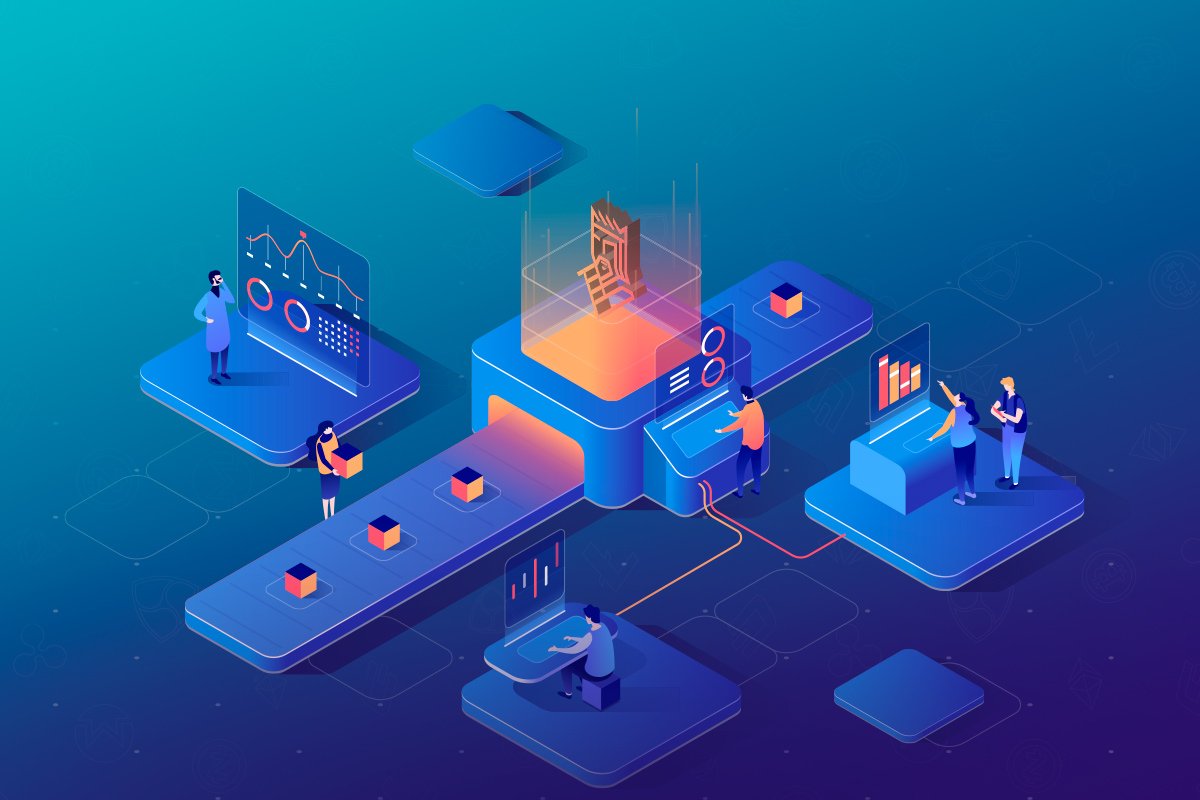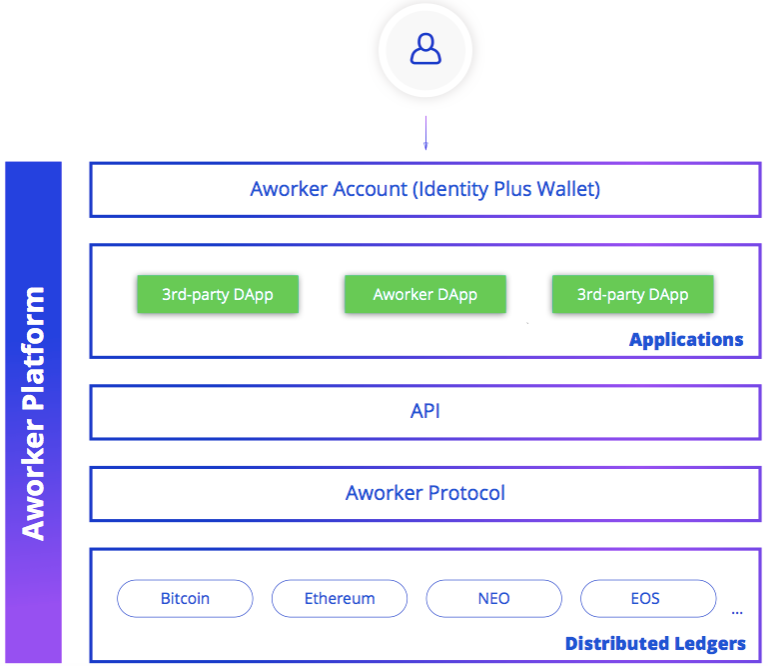About TruePlay
TRUEPLAY TECHNOLOGIES
The honesty control system is based on blockchain technology that allows controlling the invariability of the game results. Now casinos cannot tank the game results or rig the algorithm of the game according to the player strategy.
Using blockchain technologies as a form of currency, webmasters have an opportunity to control financial flows and be sure in honesty and transparency working with all the casinos under the platform.
At the moment, a large part of the functionality is realized and ready to integration with existing casino. Further development of the platform is regulated by Roadmap. The main part of development is the use of own blockchain in the future, which will be adapted to the needs of the gambling business. Node holders will ensure decentralization of TruePlay blockchain. They will confirm transactions and then be rewarded for it.
TRUEPLAY STRATEGY
TruePlay has stood as a part of the global online gambling market. This’s a market with the high indicators:
- 85 countries have already legalized online gambling at the legislative level
- 49 bn$ made an annual revenue from online gambling in 2017
- 82 bn$ will make the volume of the online gambling market by 2022
Many partners thanks to a huge experience surround TruePlay. Moreover, they’re the market leaders:
- Gamingtec – a world-level platform for creating and launching online casinos
- NetEnt – one of the most popular game providers of the world with a turnover of more than 150 million euros
- Microgaming – more than 450 slots in 45 languages
- Pokerdom – one of the leaders of online poker in the former CIS countries
- Spinomenal – developed more than hundreds of HTML5 slots
The detailed business plan of the platform is developed of TruePlay analytics. It reduces the risks and includes opportunities for the platform development.
A separate aspect is the token economics. TruePlay analytics modeled high-grade economy of the token that includes the cooperation with all the participants: exchanges, players, token holders, node holders, gambling operators, and webmasters.
At the moment TruePlay is well ahead not only ongoing ICO by technical characteristics but successfully completed ICO as well.
The first pilot project was launched on the TruePlay platform and already received a license to organize gambling. Fairplay.io is operated by Goldenrod Securities Ltd, which is licensed and regulated by the Kahnawake Gaming Commission.
Carding, payments from stolen plastic cards are an old problem for gambling site operators. Currently more than 33% of operators point to this problem in the segment (according to a survey conducted by the CASEXE research department). Operators are practically powerless against this type of fraud, as they can not prove the fact of providing services, even if the payment is made by the cardholder himself.
Operators can not pay wins to players instantly for various reasons. They need time to check documents, win legitimacy and no fraud on the player’s side. Game operators and providers invest huge amounts of money in licensing, brand building, and gaining the trust of players. At the same time, as soon as the brand became popular, soon there was a copy of the project that seemed indistinguishable from the original, but with a changing math game and problems in paying the victory. Such copies undermine the brand’s reputation, selecting some of the ever fraudulent audiences. These players will never again believe in the original project.
New operators must build long-term trust relationships with affiliates, and invest big budgets in marketing to get quality traffic for the project. To start as a new operator, significant investment in licenses, marketing and into the organization of operating activities is required. Therefore, often, new projects do not have enough reserves to pay big wins, expect to get the money first and form the necessary backup reserves.
Players who prefer to play with big bets are faced with various inconveniences when making large payouts. Due to the limits and limits of banks and processing companies, they must divide small payments, and often provide supporting documentation for each payment. All this takes time and creates additional costs.
Game operators and providers do not publish full statistics of all games, thus reducing the player’s chance to analyze real game results. layers have no chance to check the integrity and impartiality of the game results. No one gave them such tools. It is widely believed that casinos can change the outcome of the game, for example, depending on the size of the wager, resulting in a successive defeat for the player. In fact, every gambling has a mathematical expectation of less than 100%, and gives the casino a long time benefit. But even a small percentage of dishonest establishments can shape the field of negative information across the industry.
The main task faced by game providers is to increase player turnover rates with the constant expansion of player audiences. Nowadays, as a result of the lags of big companies, the segment of players who want to play with cryptocurrency is not completely closed. Maximum technical accessibility of the game, especially this applies to areas with poor or unstable internet connection. The slowness of major operators in terms of integration of new games.
For affiliates, the operator has always been a “black box” and potentially distorts game and financial statistics, to reduce the amount of reward partner payouts. Over time, dishonest operators remove affiliate players to affiliates that cause players to become games. For an affiliate, it looks like the new player stopped playing. The operator, at the same time, stops paying his prize partner and receives 100% of the profit. Partner delays and restrictions on payment for any reason.
TruePlay is a B2B platform with complex software solutions for online gaming businesses. TruePlay is not a gambling provider. TruePlay only allows licensed gambling companies to access their software (Software as a service). TruePlay Technology aims to develop online games and make it as legal and transparent as possible from every point of view.
TruePlay develops technologies for the following market participants: Operator – a licensed gambling company that regulates online gambling around the world, manages online casino projects, betting, online poker, online lottery, etc. Annual revenue from online gambling, according to research, is about $ 50 billion by 2017 and is projected to be over $ 80 billion by 2021. Online gambling is legal in 85 countries; Currently, TruePlay works with the following operators: • PokerDom is one of the leading online poker operators targeting previous CIS countries. Receive TruePlay token. • Gamingtec is a platform for creating and running online casinos. Gamingtec launched its first pilot project entirely based on TruePlay technology: https://fairplay.io.
Making a payment through the TruePlay payment gateway ensures the provision of services through blockchain technology. This service is a TruePlay token registration to TruePlay Wallet balance. For operators, the risk of financial fraud is completely removed. Making a payment through the TruePlay payment gateway ensures the provision of services through blockchain technology. This service is a TruePlay token registration to TruePlay Wallet balance. For operators, the risk of financial fraud is completely removed.
TRUEPLAY and other cryptocurrency receipts on their projects via a single protocol via the TruePlay Wallet payment gateway. A simple and multifunctional API allows you to quickly apply acceptance and payment in cryptocurrency to any online project. It will repeatedly expand traditional audiences and will open access to a large number of new customers.
TruePlay provides backup operators to pay for wins, and instantly pays wins from any size from their accounts. Operators may no longer freeze reserves that can be used for marketing and loyalty programs for players. TruePlay provides backup operators to pay for wins, and instantly pays wins from any size from their accounts.
Operators may no longer freeze reserves that can be used for marketing and loyalty programs for players. A unique honesty control system based on blockchain technology allows players to check the independence of the results of the bet made: the early generation of a series of game rounds before the start of the game while maintaining the hash in the blockchain allows the player to ensure unchanged results from player bets.
Operators will no longer delay payments for a variety of reasons – the TruePlay platform ensures ALL winning payments received during the game from carriers connected to TruePlay. This will eliminate the need for a long and complicated documentation check of each individual project, for all players on the Trueplay platform.
Operators will no longer delay payments for a variety of reasons – the TruePlay platform ensures ALL winning payments received during the game from carriers connected to TruePlay. This will eliminate the need for a long and complicated documentation check of each individual project, for all players on the Trueplay platform. The creation of a single currency TruePlay game will allow players to make payments in crypto currency and play games from worldwide brands.
TruePlay allows players to receive content anywhere in the world, even without a good internet connection. Also protect game providers from copying content. The operator gets access to the content through a single API. The integrating with it once, allow providers to include new games without any technical operations.
Full transparency of all player’s entire life cycle on all Trueplay projects. Nothing can replace statistics or publish incomplete earnings data from a player. All transactions are tied to partners from the moment of registration and are forever through publication into blockchain. This solution can be used not only in gambling projects, but also in multiplayer online games. With the use of smart contracts, reward partners are always paid in full and on time. The maximum content availability worldwide will maximize earnings from affiliates, and increase conversion rates that were previously difficult to achieve.
TruePlay as the copyright owner of the software, will grant a license for the use of software products for licensed game companies under the Software license agreement & technical support service agreement. For which company will be charged license fees, transaction fees and other types of fees that will be set individually for each project connected to the platform.
TruePlay comes in the form of a digital currency named TPLAY. The TPLAY Token will go on sale from July 1, 2018 to August 31, 2018, at a price of 1 TPLAY equivalent to 0.0009 ETH. The token purchase itself can be done with foreign currency such as ETH and BTC. Do not forget, get also purchase bonuses at certain time period.
TruePlay itself is the result of teamwork in pimpim by HOleksiy Mageramov, TruePlay strives to provide their best capabilities in this project. In addition, the team also strives to provide the best benefits and services, to anyone interested in joining the project.
So that’s all for review our ICO project for this time, hopefully can increase your knowledge in choosing the best project ICO to you invest. If you are interested in joining this project, or intend to buy a token in the sale. You can visit their official website and page below:








